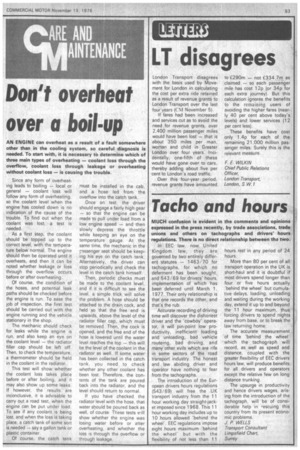ittPW
Page 55

If you've noticed an error in this article please click here to report it so we can fix it.
IT disagrees
London Transport disagrees with the basis used by Movement for London in calculating the cost per extra ride retained as a result of revenue grants to London Transport over the last four years (CM November 5).
If fares had been increased and services cut as to avoid the need for revenue grants, over 2,400 million passenger miles would have been lost — that is about 350 miles per man, woman and child in Greater London over four years. Incidentally, one-fifth of these would have gone over to cars, thereby adding about five per cent to London's road traffic Over this four-year period, revenue grants have amounted to f.:290m — not E334.7m as claimed so each passenger mile has cost 12p (or 34p for each extra journey). But this calculation ignores the benefits 'to the remaining users of avoiding the higher fares (nearly 40 per cent above today's levels) and lower services (12 per cent less).
These benefits have cost only 1.4p for each of the remaining 21,000 million passenger miles. Surely this is the relevant measure.
F. E. W1LKIN Chief Public Relations Officer, London Transport, London, S.W 1




































































































